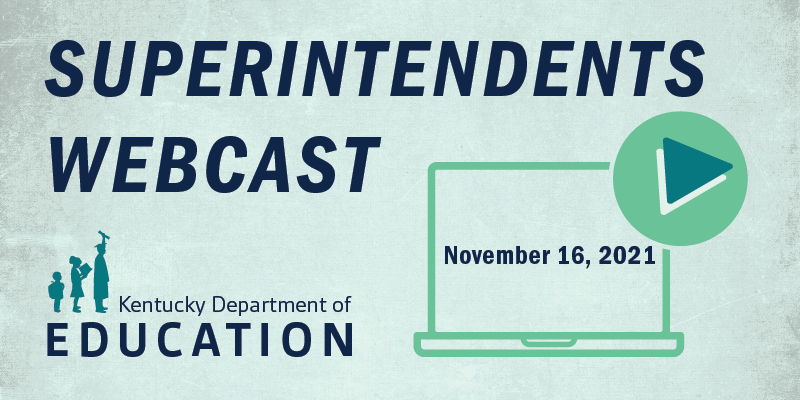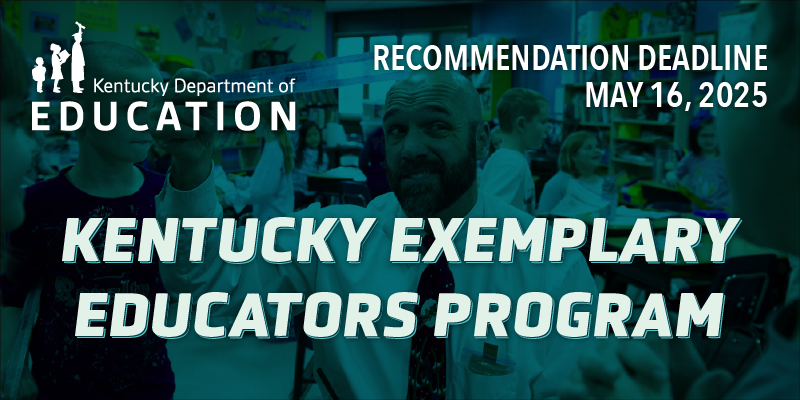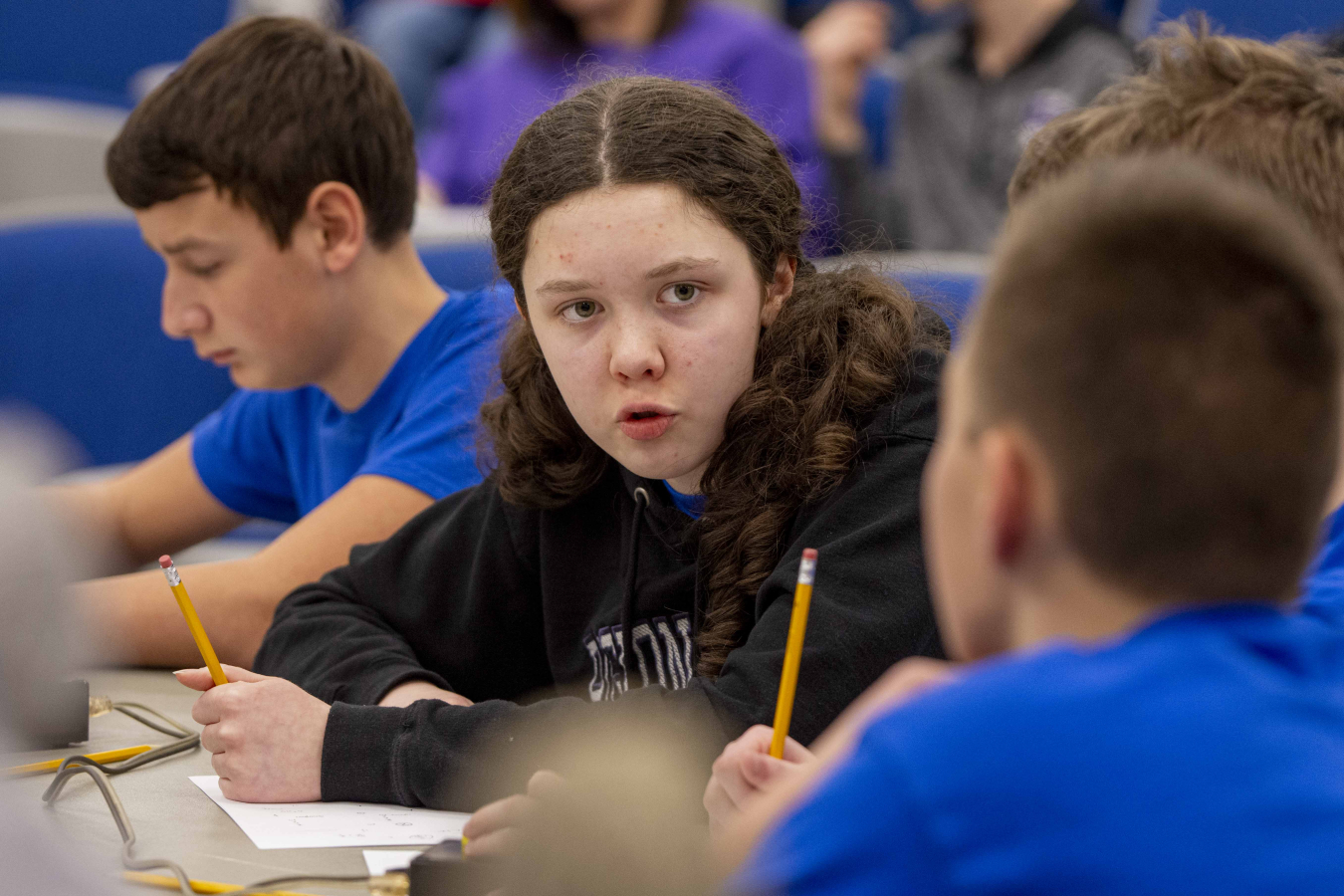 Kentucky Department of Education (KDE) leadership met with district leaders on Nov. 16 for the department’s monthly Superintendents Webcast to provide details on litigation surrounding House Bill (HB) 563.
Kentucky Department of Education (KDE) leadership met with district leaders on Nov. 16 for the department’s monthly Superintendents Webcast to provide details on litigation surrounding House Bill (HB) 563.
HB 563 created a tax credit program permitting funds in qualified education accounts to be used for private school tuition and public school education expenses. The legislation also contained a provision expanding nonresident student attendance options at public schools. The language in the bill moves away from the requirement for a student’s resident district to enter into an agreement with a nonresident school district to receive state SEEK funding for nonresident students.
Following the Franklin Circuit Court’s ruling last month that certain provisions of HB 563 were unconstitutional, several Kentucky school districts sought clarification from the court on whether the decision applied to the nonresident policy provisions.
On Oct. 8, the court held that the geographic limitations in HB 563 limiting the use of funds in qualified education accounts to education service providers in Kentucky’s eight largest counties violates Section 59 of the Kentucky Constitution. The court also ruled that the bill violates Section 184 of the Kentucky Constitution because it raised or collected a sum for education other than in common schools without first putting the issue to the voters.
On Nov. 3, the court clarified the previous order, stating that it did not apply to the nonresident sections of the bill, KDE Associate Commissioner Robin Kinney said.
Moving forward, districts may include nonresident students in Average Daily Attendance (ADA) when listed under a written agreement between a nonresident district and the resident district until July 1, 2022. However, districts must adopt policies regulating the terms under which the district shall allow enrollment of nonresident students by no later than July 1, 2022.
Beginning July 1, 2022, districts may include nonresident students in ADA for Support Education Excellence in Kentucky (SEEK) funding purposes, Kinney said. SEEK funds are the primary source of funding for school districts.
Ahead of the Kentucky General Assembly’s January regular session, KDE staff met with the School Funding Task Force on Nov. 8 to report on the equitable transfer of education funds between resident and nonresident districts, as required under section four of HB 563 and section 15 of HB 405.
As department staff looked into HB 563, they did not see any significant operational challenges from a state funding standpoint, Kinney said.
Local funds, however, present more of a challenge. In the report, KDE staff presented four potential options, along with barriers to those options, for the General Assembly to consider related to providing local funds or an equivalent amount of local funds for nonresident students.
According to Kinney, those options include:
- No transfer of local funds, which would avoid potential constitutional challenges related to transferring local revenue from resident districts to nonresident districts;
- Require resident districts to transfer local revenue funds to nonresident districts;
- Adjust the SEEK appropriation to provide additional funding for nonresident districts; and
- Create a separate appropriation, outside of SEEK, to provide additional funding for districts admitting nonresident students.
Commissioner of Education Jason E. Glass said there is “still a lot to unpack” when looking at how school funding will work moving forward. He said he expects the General Assembly to revisit this topic during its upcoming regular session.
School Funding Task Force Legislative Recommendations
Kinney also provided details on the School Funding Task Force’s recently approved legislative recommendations.
During the Nov. 8 School Funding Task Force meeting, the task force voted to adopt a list of education-related legislative recommendations, including fully funding kindergarten and district transportation.
Established under HB 405 and comprising members from the Kentucky General Assembly, the School Funding Task Force was tasked to review the current K-12 funding mechanism and how it compares with models developed by other states.
“We were very happy that the department of education got to participate in the task force, both as a member on the task force and also in presentations,” Kinney said.
Membership also included three superintendents; Logan County Superintendent Paul Mullins, Ludlow Independent Superintendent Mike Borchers and Lawrence County Superintendent Robbie Fletcher.
2021 Kentucky Education Summit
Glass kicked off Tuesday’s meeting with a follow-up on the 2021 Kentucky Education Summit, which took place Nov. 1-2 in Louisville.
“I was really proud of these two days and proud of Kentucky in these two days,” Glass said.
In all, more than 500 Kentuckians took part in the two-day event in Louisville, Glass said. After months of listening to the various stakeholder groups, the Kentucky Coalition for Advancing Education released the “United We Learn: Hearing Kentucky’s Voices on the Future of Education” report, which features themes from Glass’ virtual listening tour, as well as the collective imagination about where education can and should go in the future. The report also is available in Spanish.
“There’s a desire for a bold vision going forward around what education could be and what schools should be,” Glass said. “The development of that vision needs to be inclusive of families and communities.”
Other themes found within the report include stakeholders acknowledging that everyone is working hard to improve education in the Commonwealth, but all should work together to develop shared goals, rather than continuing with an isolated approach, Glass added. Stakeholders also focused on a need to create rich, authentic learning experiences for Kentucky’s students, while remaining committed to ensuring equity in the state’s education system.
To accompany the report, KDE also launched the United We Learn: Investing in Kentucky’s Future, One Student at a Time initiative. The initiative will focus on lessons learned from the report. Visit the department’s United We Learn webpage for more information on the initiative.
Main sessions from the Kentucky Education Summit are available on KDE’s Media Portal.
Kentucky Department for Public Health Updates
Dr. Connie White, deputy commissioner of the Kentucky Department for Public Health (DPH), told superintendents that 1,300 schools currently are participating in DPH’s K-12 COVID-19 Testing Program. This number includes both public and private schools, White said.
The program is voluntary and at no cost for Kentucky’s schools to help reopen safely for in-person instruction.
Testing is limited to staff and students of Kentucky K-12 public and private schools and includes school district employees and staff, such as bus drivers, maintenance, office staff or as determined by the school administrator.
The program began Aug. 2 and will operate the entire 2021-2022 academic year. Superintendents and school administrators can learn more about the program on the state’s K-12 School COVID Testing Program webpage.
“It is not too late for you to do this,” White said. “… We have tried to make this program as flexible as possible to meet the needs that you would have.”
During the question-and-answer portion of the meeting, White was asked if masks should be required for all students and staff in districts utilizing a test-to-stay model.
The test-to-stay model gives students who are exposed to COVID-19 at school the opportunity to test for the virus over the course of a pre-determined timeframe to decide if they can remain in the classroom or be required to quarantine.
“If you think about test-to-stay, that is a modified quarantine,” White said. “Normally, you would be quarantined at home, but in order to try and keep more students in the classroom, that quarantined is being modified so you can still attend classes. But remember, you are still a suspected case. So, wearing a mask, in our opinion, is vital so that you don’t unintentionally, unintendedly infect others.”
Guidance from DPH recommends the use of masks in schools. Until Kentucky achieves higher vaccination rates, masking remains critically important, especially for individuals participating in test-to-stay programs, White said. However, under Senate Bill 1, school districts have the authority to waive the requirement for universal masking.
KDE General Counsel Todd Allen advised superintendents to consult with their local board counsel regarding potential liability issues that may come with going against the recommendations of public health officials.
In other business, superintendents:
- Heard updates from Toni Konz Tatman, KDE’s chief communications officer. Announcements included celebrating the 2022 GoTeachKY ambassadors, and reminders about the ongoing Impact Kentucky survey and about the one-hour special on the 2021 Kentucky Education Summit being broadcasted by Kentucky Educational Television on Nov. 21 at 2 p.m. ET;
- Further discussed a pilot program to support schools and districts in the local curriculum development process with Konz Tatman. The pilot program was introduced to the superintendents during the department’s Oct. 13 Superintendents Webcast. The application window for the pilot program is open through Nov. 23;
- Heard an update on OSHA COVID-19 Emergency Temporary Standard on Vaccination and Testing from Allen;
- Discussed the U.S. Department of Education’s (USED) proposed ESSER integrated data collection with Kinney. Information requested from districts is quite detailed, Kinney said, and USED estimates that each district will spend approximately 140 hours completing the form; and
- Learned more about the health risks associated with lead in drinking water and received details on the Water Infrastructure Improvements for the Nation Grant Program from Kentucky Division of Water officials.




Leave A Comment